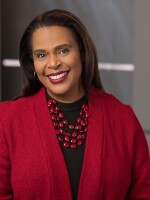TRANSCRIPT OF VIDEO
TIM BRANNON (ACADEMIC PRINCIPAL, INTERNATIONAL ACADEMY AT HAMMOND MIDDLE): The International Academy operates kind of like a school within a school. We have anywhere between 150 to 250 students depending on the time of the school year. Usually at the beginning of the year, we have fewer students, and as students arrive, a lot of the new students are offered services in the International Academy because a lot of our new students are immigrants when they arrive at our school. We have about 55% of our students are from Afghanistan. That's a newer trend in the last two or three years where they're our largest population of students. Those students primarily speak Dari or Pashto as their first language. About 40% of our students are Spanish-speaking students, primarily from Central America. However, we do have a handful of students that are from South America as well. The remainder of our students are made up of a variety of different countries around the world, Ethiopia, Ukraine, Saudi Arabia, Philippines.
JESSIE PARE' (LANGUAGE ARTS TEACHER, INTERNATIONAL ACADEMY AT HAMMOND MIDDLE): As a team, we do collect a lot of data on our students, and we drive our education based on that data. I have lots of literacy data on my students that I keep track of. I give them small-group interventions, one-on-one interventions as well in monitoring their progress throughout the year, but also outside of just a data point, we talk about our students' social and emotional needs as well, so if we see there are things that they need support in that area, we address that very deeply, because we believe that as long as they feel safe in our school, that's when the learning's going to start. If they don't feel safe or they don't know how to express themselves in a healthy way, learning can't happen.
STUDENT: Oh wait, I have to count the period?
TIM BRANNON: During COVID, when we were virtually learning, we provided kids with a lot of things to try to make it as positive an experience as it was given the circumstances. They had laptops, we provided families with Wi-Fi devices they could have in their homes. However, virtual learning is not the best practice for most anybody, but specifically for English language learners who are trying to learn a new language, it's really difficult for them to collaborate with their peers, it's difficult for them to engage in all of the language domains. For some of the families that are living in shared homes or shared apartments, having multiple children attempting to access Zoom classes at the same time is very challenging. So, it does create learning loss in that area. On the flip side, our program is designed to deal with that.
JESSIE PARE': We've been established since 2015, I've been here for seven years, and that has been our goal the entire time, is to see what possible gaps our students have and to be able to close those gaps as closely as possible.
TIM BRANNON: Our students come to us all the time with diverse educational experiences. Some of our students come to us from a country where they went to school seven hours a day, five days a week, just like we do here. However, we have other students who might've gone to school two or three days a week, two or three hours a day, for a few months a year rather than for eight months during the year. We have some students who haven't gone to school for multiple years for a variety of different reasons. All of those students have experienced learning loss and interruptions to their education, something that now all of us experienced during the pandemic.
JESSIE PARE': Do you know how to write the draft?
STUDENTS: Yes.
JESSIE PARE': Do you know how to put it together?
STUDENTS: Yes.
JESSIE PARE': Right, so are you ready to write a paragraph?
STUDENTS: Yes.
JESSIE PARE': Yes, you are. I think one of the biggest things for English language learners is that when they are learning things for the very first time, I think some people assume that they don't know certain things just because of their own educational history. However, our students are coming in with a plethora of knowledge that many of us don't have. For example, if they're in science class, they can have firsthand accounts of how farm life is working, or what city life is like, or when we're talking about even heavier topics, they have firsthand accounts of what's going on with that, and being able to have those deeper conversations. So, for our students, they just need a way in the door, and then they can do anything they absolutely want.








